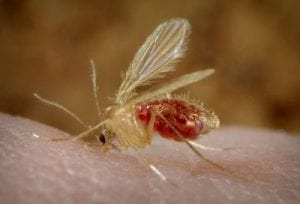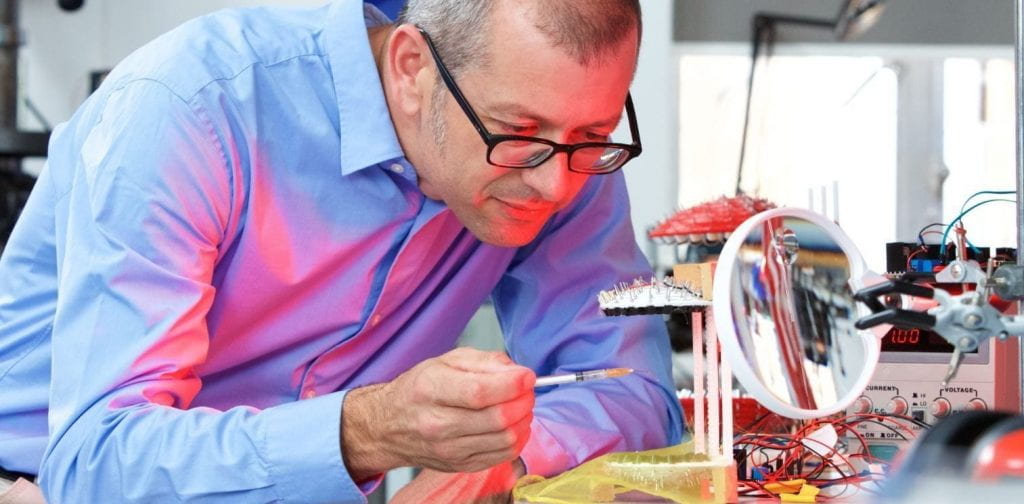Detecting Deadly Diseases With Sound Waves
Professor Bruce Drinkwater explains how he and his colleagues in Brazil are using acoustics to detect disease.
Their collaboration was one of the six projects shortlisted in the Brazil category for the prestigious 2018 Newton Prize. Bruce believes that new technology is the key to tackling the challenges of disease and poverty. He said, “As an engineer, working with the end-users of this technology, this is an area where I can make a difference. Leishmaniasis is a tropical disease that’s endemic in 97 countries.
More than a million new cases occur each year world-wide and without early diagnosis, people are at risk of disability and death. Parasites, transferred by sand-fly bites, cause ulcers of the skin, mouth and nose with skin lesions resembling leprosy. Unchecked, infections can be life-limiting, leading to horrific disfigurement, fever, loss of red blood cells and an enlarged spleen and liver.”
Bruce is working with Professor Glauber Silva of Federal University of Alagoas, Brazil
The team have made some fantastic breakthroughs in the area of disease detection: “We are developing small and robust prototype acoustic devices that have the potential to detect Leishmaniasis. The lab-on-a-chip devices use acoustic forces to sort and sense thousands of cells, or other microscopic objects, simultaneously.

In Leishmania, the infected cells (macrophages) have different mechanical properties from healthy cells. We can exploit this difference in various ways, sorting diseased from healthy cells is just one.
The devices can also help detect antibodies in blood and antigens in urine samples by concentrating them with ultrasonic forces. This leads to more rapid diagnosis and monitoring of the disease.
Regular communication is crucial in this interdisciplinary project. Here Professors Silva and Moreira in Brazil discuss the experimental results of a new diagnostic device in a video link to Professor Drinkwater in the UK.

If successful, theses devices could have a huge impact on the lives of those in Brazil and other developing countries: “Leishmaniasis is one of the NTDs that lag far behind HIV/AIDS, tuberculosis and malaria when it comes to research funding. It affects 20,000 people each year in parts of Brazil where poverty, overcrowding and inadequate sanitation are major risk factors. If we can have an impact on Leishmaniasis, the same techniques could be used against other NTDs, transforming outcomes for some of the world’s most disadvantaged people. “
“If we can have an impact on Leishmaniasis, the same techniques could be used against other neglected tropical diseases, transforming outcomes for some of the world’s most disadvantaged people,” says Bruce. “These devices are undergoing testing by Brazilian biomedical researchers working on neglected tropical diseases (NTDs) with promising results. After further development of the devices, the next phase will be field trials in hard to access areas where help is most needed.”
Newton Fund
The Newton Fund was launched in 2014 to promote economic development in countries eligible for official development assistance (ODA). A grant from the Newton fund and the Royal Society made possible Bruce’s research partnership with Professor Glauber Silva from the Federal University of Alagoas in Brazil, enabling them to bring together a multidisciplinary team with expertise in engineering, physics and biomedicine.


